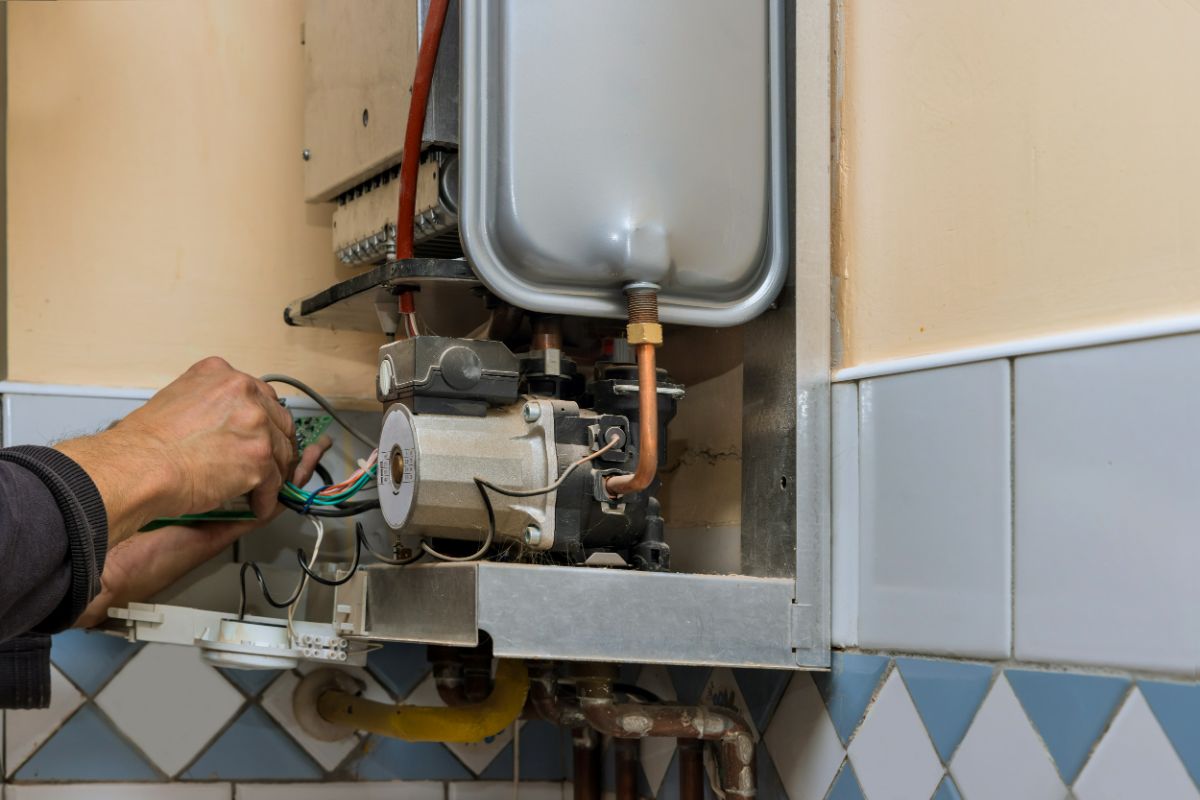Caring for Your Home's Hot Water System: Important TipsStraightforward Methods to Care for Your Home's Hot Water System Effectively
Caring for Your Home's Hot Water System: Important TipsStraightforward Methods to Care for Your Home's Hot Water System Effectively
Blog Article
On this page down the page you can locate a good deal of extremely good resources around Tips For Maintaining Your Hot Water Heater.

Warm water is vital for day-to-day comfort, whether it's for a rejuvenating shower or washing dishes. To ensure your warm water system runs successfully and lasts much longer, normal upkeep is crucial. This post offers useful tips and understandings on just how to preserve your home's hot water system to avoid disturbances and costly fixings.
Introduction
Maintaining your home's hot water system could seem overwhelming, yet with a couple of straightforward actions, you can guarantee it runs smoothly for many years to come. This guide covers everything from recognizing your hot water system to do it yourself upkeep ideas and understanding when to employ expert aid.
Relevance of Maintaining Your Hot Water System
Normal upkeep not just prolongs the lifespan of your warm water system however also ensures it runs efficiently. Disregarding upkeep can cause reduced efficiency, greater energy costs, and even early failing of the system.
Indications Your Hot Water System Demands Upkeep
Knowing when your hot water system requires interest can stop major issues. Keep an eye out for indications such as inconsistent water temperature level, strange sounds from the heating unit, or rusty water.
Purging the Water Heater
Flushing your hot water heater removes debris accumulation, enhancing efficiency and lengthening its life.
Checking and Replacing Anode Rods
Anode poles avoid deterioration inside the storage tank. Inspecting and replacing them when broken is important.
Complex Concerns Requiring Specialist Help
Examples consist of major leakages, electric problems, or if your water heater is continually underperforming.
Routine Expert Upkeep Benefits
Specialist maintenance can include detailed inspections, tune-ups, and making sure compliance with security requirements.
Evaluating and Adjusting Temperature Settings
Adjusting the temperature settings makes sure optimum performance and safety.
DIY Tips for Maintenance
You can perform numerous upkeep tasks yourself to keep your hot water system in leading problem.
Looking for Leakages
On a regular basis evaluate pipes and connections for leaks, as these can result in water damage and higher bills.
Understanding Your Hot Water System
Before diving into maintenance tasks, it's handy to recognize the standard elements of your hot water system. Generally, this includes the water heater itself, pipelines, anode poles, and temperature controls.
Monthly Maintenance Tasks
Normal month-to-month checks can assist catch minor concerns prior to they intensify.
Testing Stress Alleviation Valves
Checking the pressure safety valve ensures it functions appropriately and stops extreme stress accumulation.
Insulating Pipes
Insulating warm water pipes reduces warmth loss and can conserve energy.
When to Call a Specialist
While do it yourself maintenance is beneficial, some problems call for specialist knowledge.
Conclusion
Normal upkeep of your home's warm water system is important for effectiveness, longevity, and price savings. By adhering to these ideas and knowing when to look for professional aid, you can make sure a dependable supply of warm water without unforeseen disruptions.
How to Maintain an Instant Hot Water Heater
Before tinkering with your hot water heater, make sure that it’s not powered on. You also have to turn off the main circuit breaker and shut off the main gas line to prevent accidents. Also turn off the water valves connected to your unit to prevent water from flowing into and out of the appliance. 2. When you’re done, you have to detach the purge valves’ caps. These look like the letter “T” and are situated on either side of the water valves. Doing so will release any pressure that has accumulated inside the valves while at the same time avoid hot water from shooting out and burning your skin. 3. When the purge valves’ caps are removed, you have to connect your hosing lines to the valves. Your unit should have come with three hoses but if it didn’t, you can purchase these things from any hardware or home repair shops. You can also get them from retail stores that sell water heating systems. Read the user’s manual and follow it to complete this task properly. When the hosing lines are connected, open the purge port’s valves. 4. You should never use harsh chemical cleaners or solutions when cleaning your unit. Make use of white vinegar instead. It should be undiluted and you’ll probably use about 2 gallons. 5. Now flush your water heater. This task should probably take about 40 minutes. We can’t give you specific directions for this because the procedure is carried out depending on the type, model and brand of your heater. With that being said, refer to the user’s manual. 6. When you’re done draining the unit, you have to turn off the purge port valves again. Remove the hosing lines that you earlier installed on each of the water valves. Put the valve caps (purge port) back in their respective places and be very careful so as not to damage the rubber discs that are found inside these caps. 7. Now that everything’s back in place, check your user’s manual again to find out how to reactivate your water heating system. 8. Once it is working, turn one of your hot water faucets on just to let air pass through the heater’s water supply pipes. Leave the tap on until water flows smoothly out of it. https://www.orrplumbing.com/blog/2014/september/how-to-maintain-an-instant-hot-water-heater/

I'm certainly very curious about Tips on Maintaining a Water Heater and I am assuming you enjoyed the new entry. Sharing is caring. You just don't know, you may be helping someone out. We treasure your readership.
Call Today Report this page